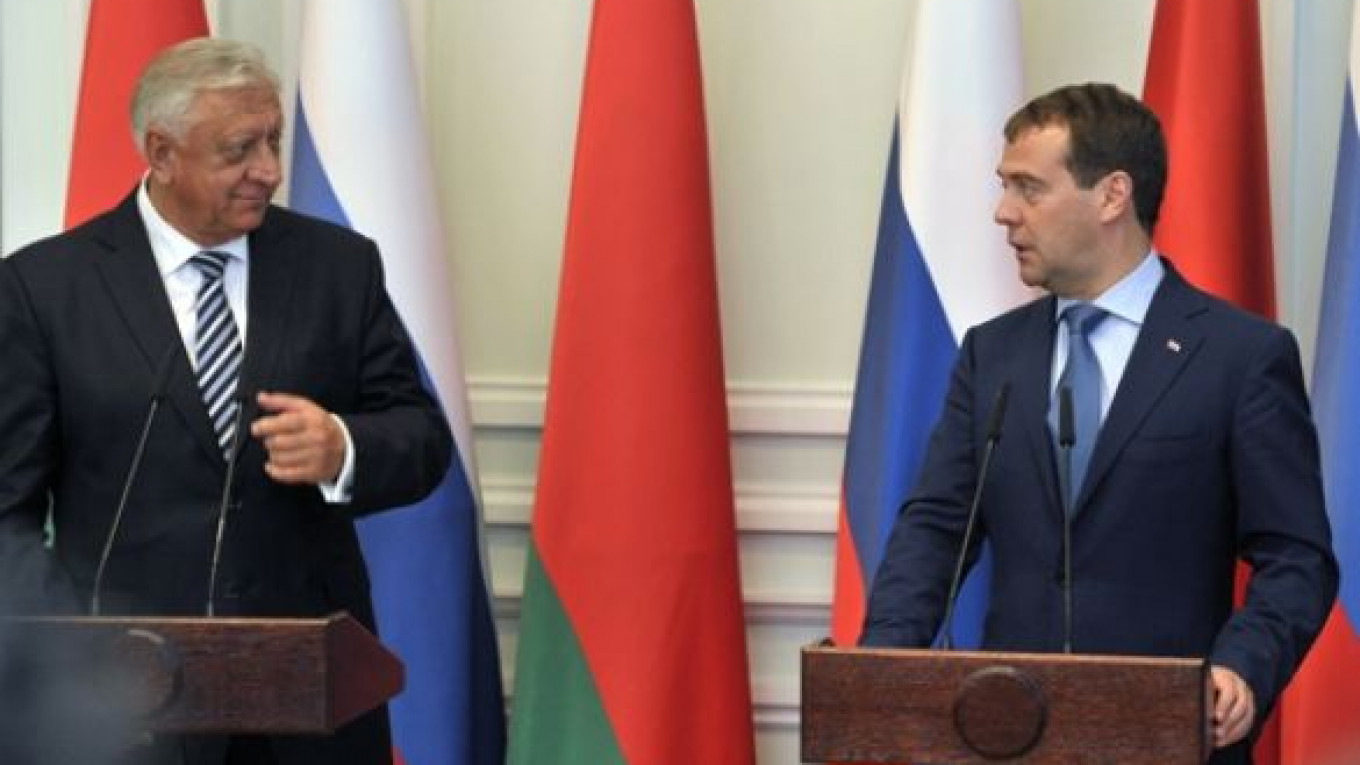Prime Minister Dmitry Medvedev on Wednesday pushed for an investigation to determine whether Belarus is cheating Russia out of revenues.
The government suspects that Belarus disguises its exports of oil products, which it refines from Russian crude, as exports of solvents to avoid payments to Russia.
"We agreed to investigate everything meticulously and make the required decisions, even if they will be difficult ones," Medvedev said after bilateral talks in Minsk. "And if there were violations, the culprits must incur punishment."
Medvedev added that Russia, in that event, should recover its lost income.
As of 2011, Belarus agreed to transfer to Russia the duty on any exports of gasoline, diesel and jet fuels made from Russian oil, but solvents were exempt from the agreement.
In return, Russia stopped charging an export duty on the oil it delivers to Belarus.
Belarussian Prime Minister Mikhail Myasnikovich said he felt equally unsettled by the potential breach of the deal with Russia.
"We share the concern of the Russian partners," he said.
Officials didn't report how much revenue Russia might have lost and over what period of time.
A Federal Customs Service official, speaking on condition of anonymity, said last month that Russia could collect $450 million in owed income, Izvestia reported.
In 2011 alone, Belarus' exports of solvents increased ninefold to 2.1 million tons.
"The subject will come up for discussion because it's totally clear that this unexpected growth … raises questions," a Russian government source said ahead of Medvedev's visit. "Nobody's going to let the matter rest."
Many countries reported imports of Belarussian solvents as imports of oil products, news reports have said.
On the sidelines of the visit, Deputy Finance Minister Sergei Storchak said a Russia-led anti-crisis fund for several post-Soviet states will lend Belarus another portion of a previously arranged loan. That portion will measure $440 million.
A Message from The Moscow Times:
Dear readers,
We are facing unprecedented challenges. Russia's Prosecutor General's Office has designated The Moscow Times as an "undesirable" organization, criminalizing our work and putting our staff at risk of prosecution. This follows our earlier unjust labeling as a "foreign agent."
These actions are direct attempts to silence independent journalism in Russia. The authorities claim our work "discredits the decisions of the Russian leadership." We see things differently: we strive to provide accurate, unbiased reporting on Russia.
We, the journalists of The Moscow Times, refuse to be silenced. But to continue our work, we need your help.
Your support, no matter how small, makes a world of difference. If you can, please support us monthly starting from just $2. It's quick to set up, and every contribution makes a significant impact.
By supporting The Moscow Times, you're defending open, independent journalism in the face of repression. Thank you for standing with us.
Remind me later.






